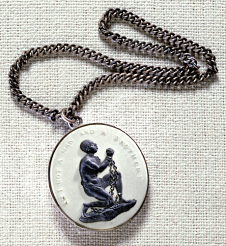Busting Myths about Evolutionary Anthropology
Quarrels over human sociobiology in the 1970s and 1980s introduced several myths into anthropology. Although the heat has gone out of that controversy, these myths still divide the evolutionary and sociocultural subfields. At a time when our entire scholarly enterprise is under attack, we should avoid unnecessary internecine disputes. Here we dispel three of the most pernicious myths that non-evolutionary anthropologists may harbor about our discipline.
Darwin
Myth # 1: Darwin was a typical Victorian racist. Darwin’s Descent of Man (1871, 1874) has never been required reading in anthropology, not even in biological anthropology. A pity, because the real Darwin was a lot more interesting than the myths about him. In Victorian times, pro-slavery arguments held that human “races” were in fact different species—ergo, if a dairyman can keep cows why can’t a plantation owner keep slaves? If Africans are a different species, isn’t the principle the same?

In chapter seven, “On the Races of Man,” Darwin outlines the argument in some detail and then demolishes it. For example, Darwin notes that crosses of different species result in handicapped offspring, if they result in any offspring at all. Yet during his long sojourn in South America on the Beagle, he observed that Africans, Native Americans, and Europeans had intermarried extensively, and that there was no sign of the reproductive breakdown expected if those races had been different species. He summarizes his argument thusly: “The American Aborigines, Negros, and Europeans are as different from each other in mind as any three races that can be named; yet I was constantly struck while living with the Fuegans on board the ‘Beagle,’ with the many little traits of character showing how similar their minds were to ours” (Descent of Man 1874).
Describing the evolution of the intellectual and moral faculties in chapter four, he concluded that the human species as a biological creature evolved in “primordial times” by natural selection and that changes since then owed mainly to traditions and laws, not to organic (or what we could call genetic) differences. These were surprisingly modern views for Darwin’s time, and inspired the anti-racist perspectives of later anthropologists including Franz Boas.
Culture and agency
Myth # 2: Evolutionists do not think that culture and agency are important. This charge is largely misplaced. Comparative evolutionary models of inequality, resource unpredictability, and pathogen stress assume that while cultures are diverse, all humans are fundamentally similar in terms of their capacity to respond to adaptive challenges. Evolutionary anthropologists also acknowledge and explore the ways in which culture can powerfully modulate these responses. For example, in Current Anthropology, Bernard Chapais (2014) introduces the concept of context-dependent cross-cultural universals noting that courtship should occur universally given our evolutionary history, but is culturally suppressed in many societies. Hames and colleagues (2017) found this concept useful in a re-analysis of Standard Cross-Cultural Sample in the Human Relations Area Files. They show that male androphilia is more widely practiced than previously documented, but still repressed in a number of cultures despite clear evidence that many biological factors influence its expression. Richerson has long-advocated that culture and genes are two interactive lines of inheritance that together shape human behavior, culture, and biology, with cultural forces sometimes becoming far more important drivers of behavior and change.
Agency is an important concept in contemporary sociocultural anthropology and evolutionary anthropology. Behavioral ecological theory holds that individuals and groups strategically adapt to local environments, but often choose different strategies—and, in the context of cultural evolution, people actively choose what items to invent and adopt. Cultures in turn act as selective forces on human genes, thus it is not too much to say that that the biology of the human species was and is shaped by human agency. Those who believe that evolutionary approaches ignore culture or agency have simply not read our and our colleagues’ work.
Politics
Myth # 3. Evolutionary theory leads to reactionary political views. Two surveys, one each of psychology and anthropology graduate students, found that the political orientations of evolutionary and non-evolutionary students were practically indistinguishable.
Evolutionary anthropologists draw from evolutionary theory in formulating and testing hypotheses about variation in human behavior and populations. However, we also incorporate many methods and motivations of other subfields in our research. In dispelling the above myths for non-evolutionary scholars, we hew to the stated aims of the Evolutionary Anthropology Society (EAS): “[to encourage] a theoretically unified evolutionary perspective that cuts across disciplinary boundaries…. to be a unifying force in the AAA, not a divisive one.”
Peter Richerson is a professor emeritus in the Department of Environmental Science and Policy at University of California Davis, and is the current president of the EAS.
Raymond Hames is a professor in the Department of Anthropology at University of Nebraska-Lincoln, and is a past president of the EAS.
Melanie Martin and Katie Starkweather are co-Editors of the EAS Section News column.
Cite as: Richerson, Peter, and Raymond Hames. “Busting Myths about Evolutionary Anthropology.” Anthropology News website, July 18, 2017. doi: 10.1111/AN.510

